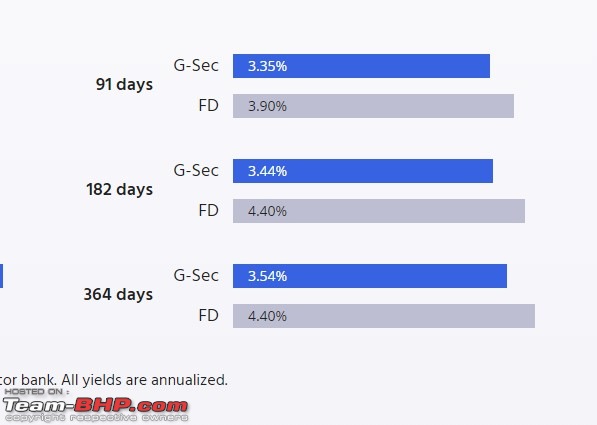| | #946 |
| Team-BHP Support  | |
| |  (2)
Thanks (2)
Thanks
|
| |
| | #947 |
| BHPian Join Date: Jan 2014 Location: Mumbai
Posts: 89
Thanked: 339 Times
| |
| |
| | #948 |
| Distinguished - BHPian  Join Date: Aug 2014 Location: Delhi-NCR
Posts: 4,330
Thanked: 72,429 Times
| |
| |  (1)
Thanks (1)
Thanks
|
| | #949 |
| BHPian Join Date: Jan 2014 Location: Mumbai
Posts: 89
Thanked: 339 Times
| |
| |  (1)
Thanks (1)
Thanks
|
| | #950 |
| Senior - BHPian | |
| |  (1)
Thanks (1)
Thanks
|
| | #951 |
| Team-BHP Support  | |
| |  (3)
Thanks (3)
Thanks
|
| | #952 |
| Distinguished - BHPian  Join Date: Aug 2014 Location: Delhi-NCR
Posts: 4,330
Thanked: 72,429 Times
| |
| |
| | #953 |
| Team-BHP Support  | |
| |  (7)
Thanks (7)
Thanks
|
| | #954 |
| Senior - BHPian | |
| |  (2)
Thanks (2)
Thanks
|
| | #955 |
| Team-BHP Support  | |
| |  (3)
Thanks (3)
Thanks
|
| | #956 |
| Distinguished - BHPian  Join Date: Dec 2012 Location: India
Posts: 4,841
Thanked: 14,752 Times
| |
| |  (5)
Thanks (5)
Thanks
|
| |
| | #957 |
| Distinguished - BHPian  Join Date: Aug 2014 Location: Delhi-NCR
Posts: 4,330
Thanked: 72,429 Times
| |
| |  (6)
Thanks (6)
Thanks
|
| | #958 |
| Team-BHP Support  Join Date: Jul 2010 Location: Bangalore
Posts: 6,776
Thanked: 28,191 Times
| |
| |  (8)
Thanks (8)
Thanks
|
| | #959 |
| Distinguished - BHPian  Join Date: Aug 2014 Location: Delhi-NCR
Posts: 4,330
Thanked: 72,429 Times
| |
| |  (2)
Thanks (2)
Thanks
|
| | #960 |
| Senior - BHPian Join Date: May 2009 Location: Chennai
Posts: 4,630
Thanked: 5,940 Times
| |
| |  (6)
Thanks (6)
Thanks
|
 |
Most Viewed







